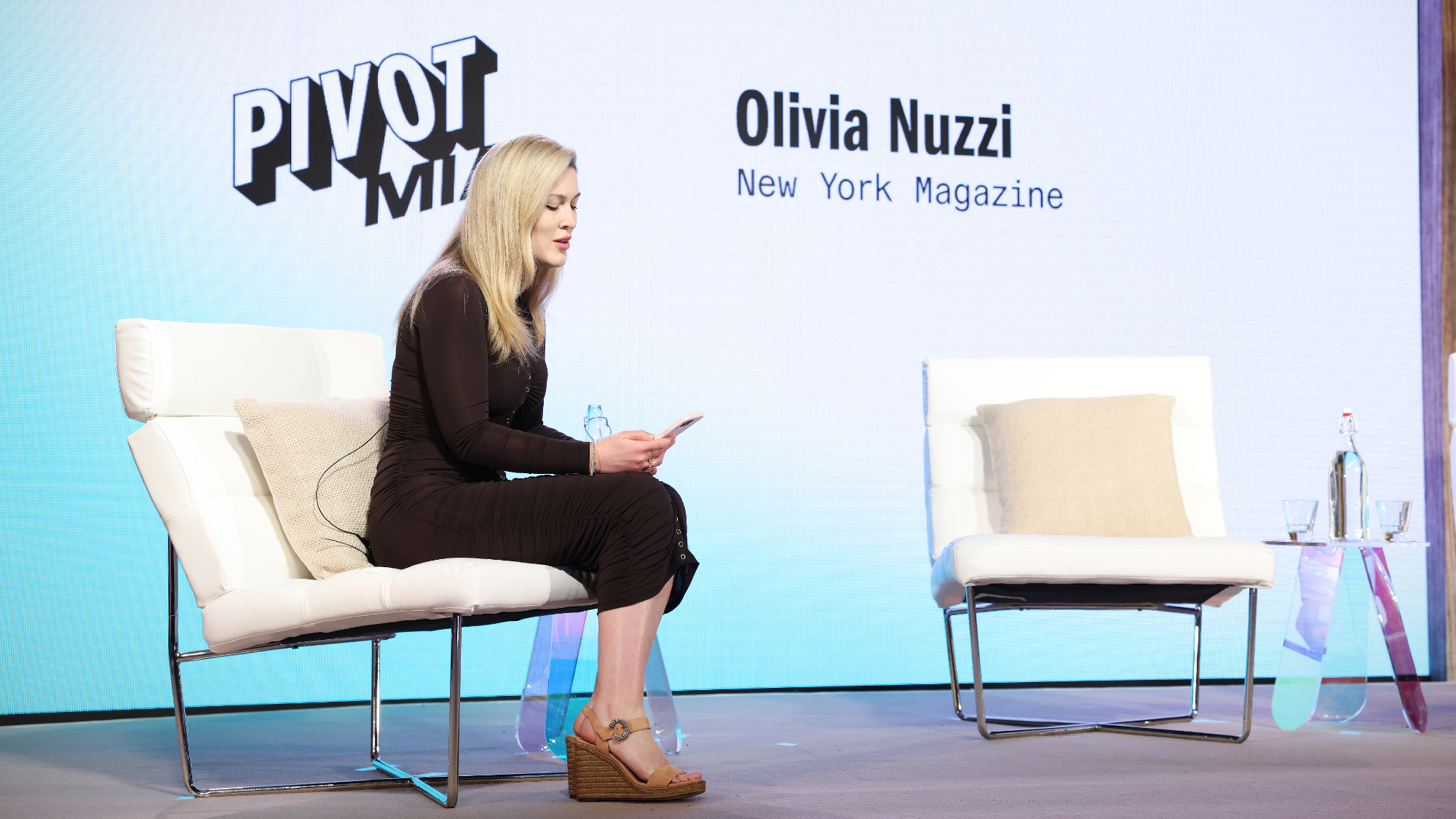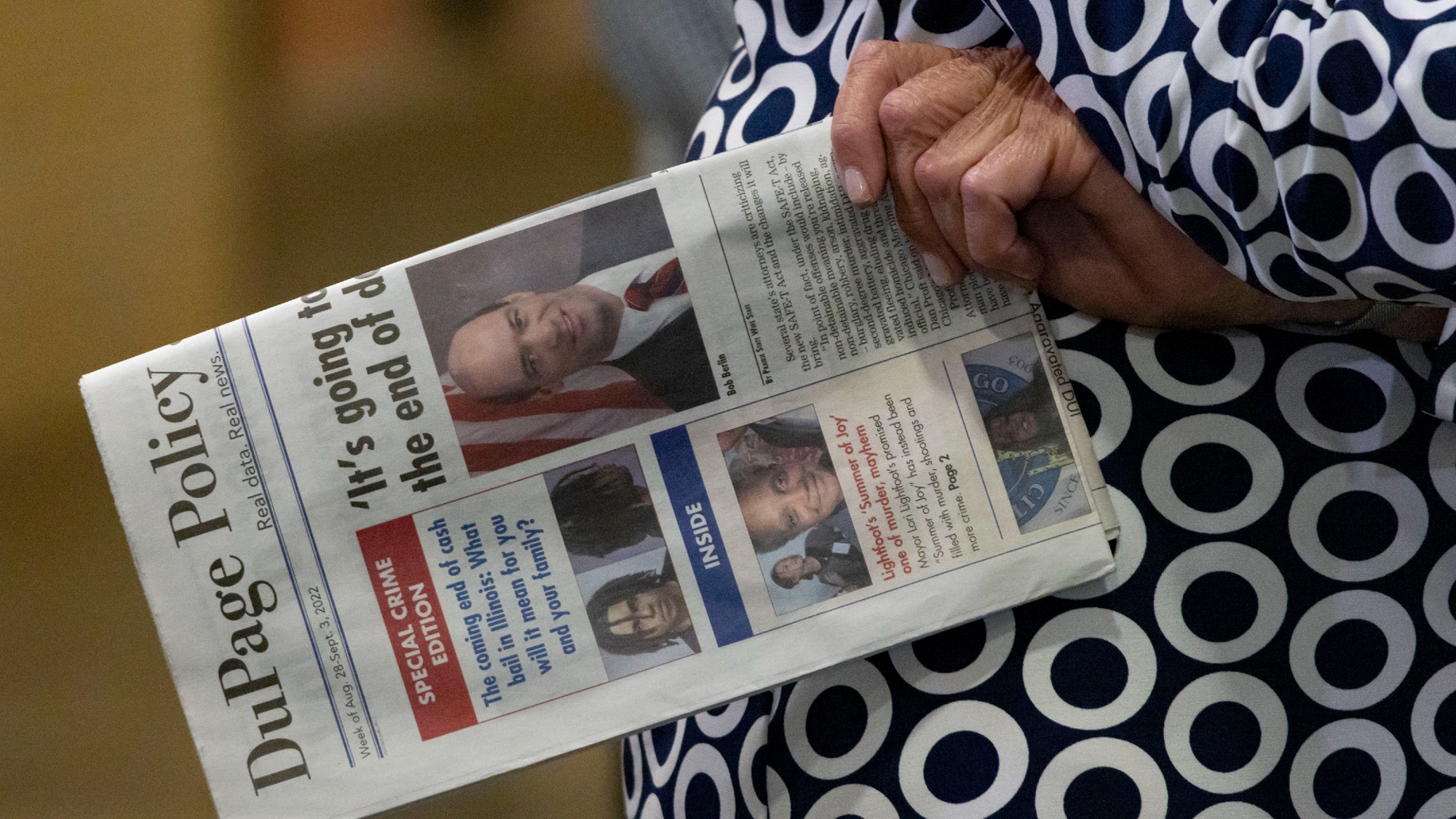Zoom call scandal: Financial Times journalist suspended over eavesdropping claims
Reporter Mark Di Stefano accused of listening in as staff at rival news organisations told of pay cuts and furloughs

A free daily email with the biggest news stories of the day – and the best features from TheWeek.com
You are now subscribed
Your newsletter sign-up was successful
A Financial Times reporter has been suspended for allegedly eavesdropping on Zoom meetings where staff at The Independent and the London Evening Standard were informed of planned salary cuts and furloughs.
Mark Di Stefano, the FT’s media and technology reporter, is accused of listening in to the audio feeds of video conference calls where bosses at the two sister news outlets outlined their response to the financial impact of the coronavirus pandemic.
The allegations follow an investigation by The Independent.
The Week
Escape your echo chamber. Get the facts behind the news, plus analysis from multiple perspectives.

Sign up for The Week's Free Newsletters
From our morning news briefing to a weekly Good News Newsletter, get the best of The Week delivered directly to your inbox.
From our morning news briefing to a weekly Good News Newsletter, get the best of The Week delivered directly to your inbox.
What is being claimed?
Zoom log files reportedly show than an account registered to Di Stefano’s work email address joined a private video call for Independent staff last Thursday for 16 seconds.
“The caller’s video was disabled, but journalists saw his name flash briefly on screen before he left the meeting,” says the news site.
Five minutes later, an unnamed account reportedly joined the call. Again, the video was switched off “so that only a black square was displayed among the screens showing up to 100 people who had been invited to attend”, The Independent adds.
A free daily email with the biggest news stories of the day – and the best features from TheWeek.com
Subsequent investigations allegedly revealed that the second account - which is said to have stayed in the meeting until the end - was linked to a mobile phone used by Di Stefano.
The Guardian reports that the FT journalist, “a prolific tweeter with more than 100,000 followers, broke the news of the meetings on Twitter at the same time as staff were being informed”.
A story on the measures being introduced by the Standard was then published by the FT, while a short summary of the cuts at The Independent appeared on the FT’s daily live blog.
The FT’s story about the Standard cuts cites “people on the call” as its source.
Both the Standard and The Independent are based in the same building in Kensington, west London, and are part-owned by Russian tycoon Evgeny Lebedev.
–––––––––––––––––––––––––––––––For a round-up of the most important stories from around the world - and a concise, refreshing and balanced take on the week’s news agenda - try The Week magazine. Start your trial subscription today –––––––––––––––––––––––––––––––
And the reaction?
Bosses at The Independent and Evening Standard have issued scathing responses to the alleged privacy breach.
The Independent editor Christian Broughton said: “We respect freedom of speech and understand the challenges of news gathering, but the Independent considers the presence of a third-party journalist in a staff briefing to be entirely inappropriate and an unwarranted intrusion into our employees’ privacy.
“Our spokesperson had a full statement prepared for the press. Any interested reporters only needed to call and ask.”
A spokesperson for the Standard said: “For a journalist from the FT to have illegitimately accessed a private Zoom call is unacceptable. We are sure the FT will want to offer an immediate explanation and an apology.”
Meanwhile, the newspaper’s editor, ex-chancellor George Osborne, tweeted:
The FT’s code of conduct states: “The press must not seek to obtain or publish material acquired by... intercepting private or mobile telephone calls, messages or emails. Engaging in misrepresentation or subterfuge... can generally be justified only in the public interest and then only when the material cannot be obtained by other means.”
Di Stefano and the FT are yet to comment.
-
 6 of the world’s most accessible destinations
6 of the world’s most accessible destinationsThe Week Recommends Experience all of Berlin, Singapore and Sydney
-
 How the FCC’s ‘equal time’ rule works
How the FCC’s ‘equal time’ rule worksIn the Spotlight The law is at the heart of the Colbert-CBS conflict
-
 What is the endgame in the DHS shutdown?
What is the endgame in the DHS shutdown?Today’s Big Question Democrats want to rein in ICE’s immigration crackdown
-
 Jeff Bezos: cutting the legs off The Washington Post
Jeff Bezos: cutting the legs off The Washington PostIn the Spotlight A stalwart of American journalism is a shadow of itself after swingeing cuts by its billionaire owner
-
 The Washington Post is reshaping its newsroom by laying off hundreds
The Washington Post is reshaping its newsroom by laying off hundredsIn the Spotlight More than 300 journalists were reportedly let go
-
 Bill Moyers: the journalist who was the face of PBS
Bill Moyers: the journalist who was the face of PBSFeature A legend in public broadcasting
-
 How AI is offering journalists protection from persecution in Venezuela
How AI is offering journalists protection from persecution in VenezuelaUnder the Radar Media organisations launch news show hosted by AI-generated avatars to 'shelter their real-life journalists'
-
 Reporter on leave over alleged RFK relationship
Reporter on leave over alleged RFK relationshipSpeed Read New York magazine political reporter Olivia Nuzzi admitted to having a personal relationship with her subject
-
 Rupert Murdoch's behind-closed-doors succession court battle
Rupert Murdoch's behind-closed-doors succession court battleThe Explainer Media mogul's legal dispute with three of his children over control of his influential empire begins today
-
 The increasing ubiquity of 'pink-slime' journalism
The increasing ubiquity of 'pink-slime' journalismThe Explainer The issue is becoming more concerning as the US election draws closer
-
 The secretive practice of 'catch-and-kill' tabloid journalism
The secretive practice of 'catch-and-kill' tabloid journalismThe Explainer Outlets such as the National Enquirer have become infamous for using the practice